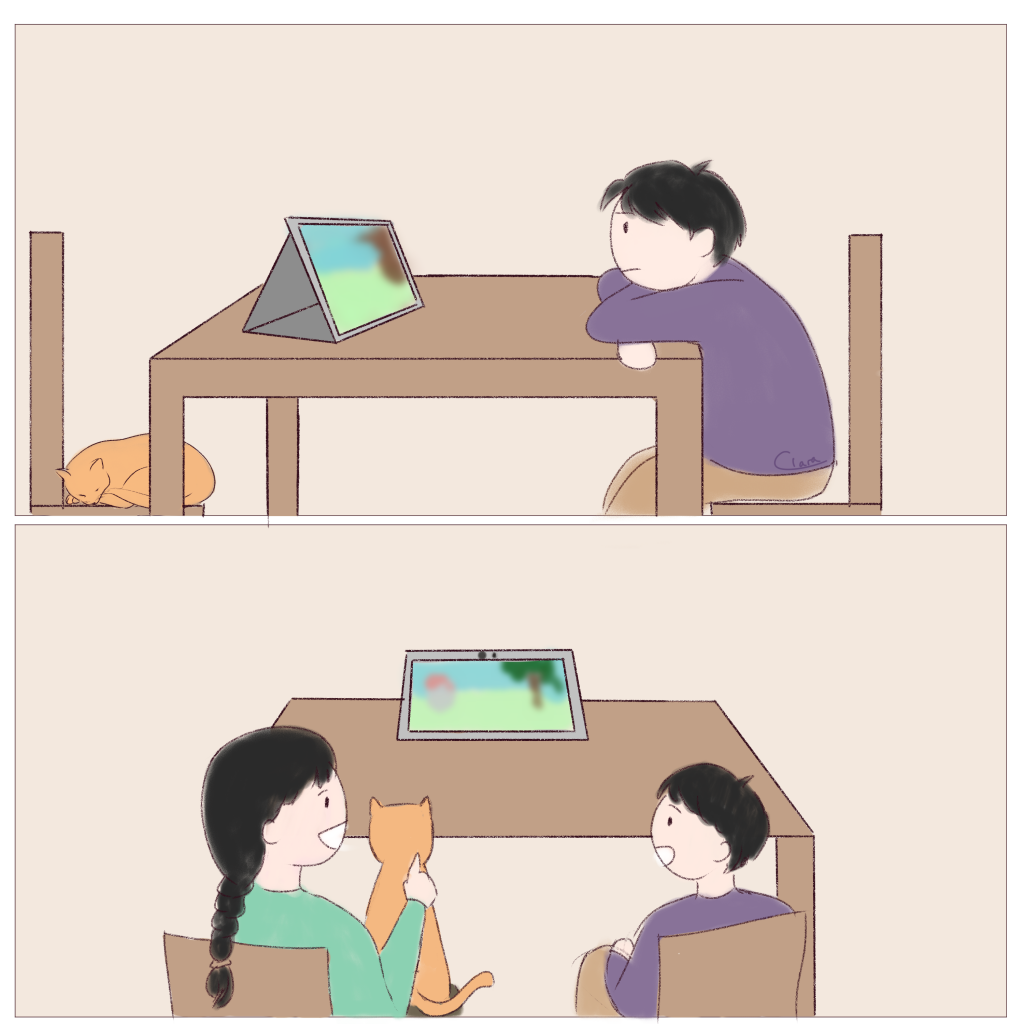How can I increase the educational value of screen time?

Screen activities can be catchy, often presenting content in a way that can pique the attention of a child. For example, children can become passionate about activities or topics that they would initially find boring in other settings. Complementing on screen with off screen learning is a good way to increase the educational value of screen time.
As we have presented in previous comics, co-viewing, or watching a screen together, can be used to make the bridge between virtual and physical worlds (for example Can my child learn from watching television). You can use coviewing to tap into any one of the four educational principles: active involvement, engagement, meaningfulness, and social interaction (see Are apps in the educational category online really ‘educational’?). To increase meaningfulness for example an app about gardening can be complemented by buying some seeds and trying to grow a houseplant.
Of course, watching or playing through entire screen time activities can be time consuming for a busy caregiver! There is however no need for the co-viewer to be an adult expert about the real world. The co-viewer can also be a peer. There is a lot of evidence that children learn from peers and there are advantages to learning together. Recently, there is some new evidence that even a preverbal baby can augment the educational value of a screen for another peer. This has only been tested in one specific screen time environment so we cannot yet make any strong conclusions. We will keep you updated regularly on the cutting edge of this exciting new research!
The scientific sources for our comic:
